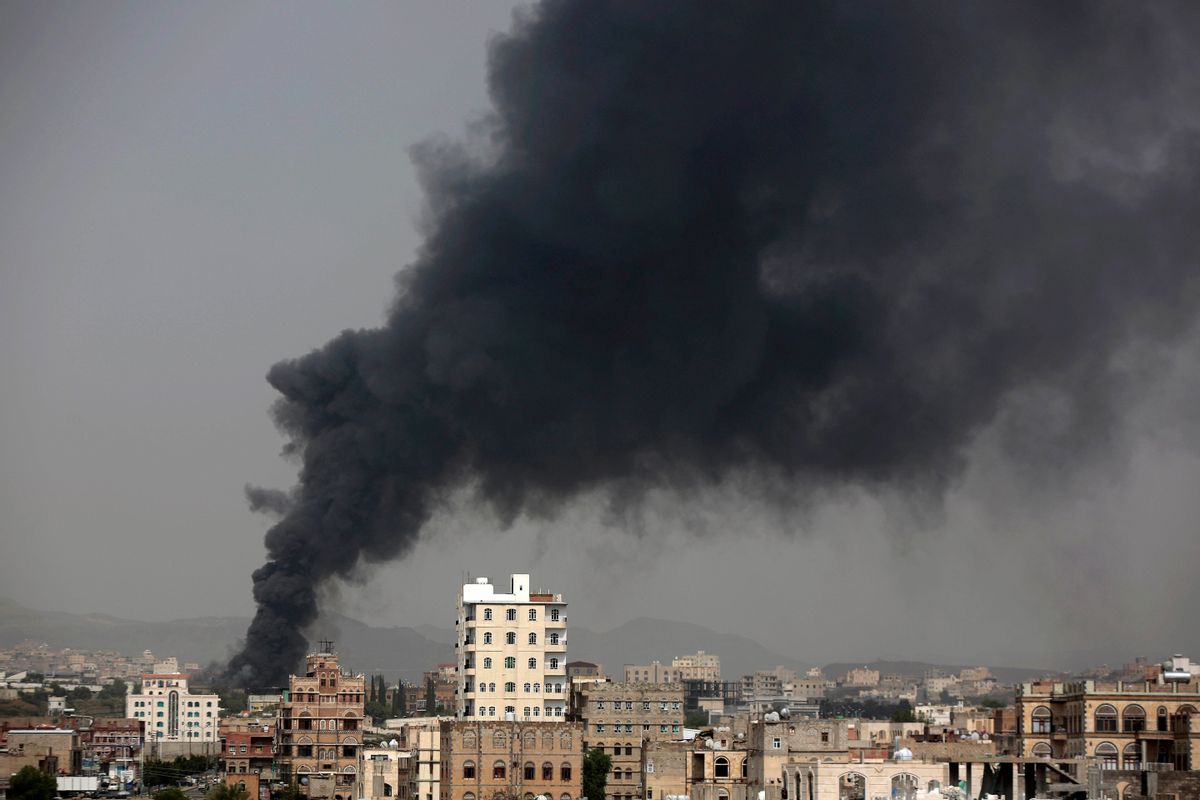A secret network of at least 18 prisons along southern Yemen have been home to brutal and inhumane torture as hundreds have been captured in a hunt for al-Qaeda militants, according to an investigation by the Associated Press.
Torture methods have included what is known as "the grill" which is when a person is "tied to a spit like a roast and spun in a circle of fire," according to the AP. The prisons are run by the United Arab Emirates or Yemeni forces "created and trained by the Gulf nation," according to multiple accounts from former detainees, families of prisoners, civil rights lawyers, and Yemeni military officials.
While senior American defense officials confirmed on Wednesday that U.S. forces participate in interrogations of detainees at the prisons, but denied "any participation in or knowledge of human rights abuses," according to the AP. Though the U.S. could still be in violation of international law if they had questioned detainees who have been tortured.
American forces have provided questions for others to ask detainees and also receive the transcripts from Emirati's. "We always adhere to the highest standards of personal and professional conduct," Dana White, chief Defense Department spokeswoman said, according to the AP. "We would not turn a blind eye, because we are obligated to report any violations of human rights." The UAE's government flatly denied any reports of torture and abuse.
The AP reported:
None of the dozens of people interviewed by AP contended that American interrogators were involved in the actual abuses. Nevertheless, obtaining intelligence that may have been extracted by torture inflicted by another party would violate the International Convention Against Torture and could qualify as war crimes, said Ryan Goodman, a law professor at New York University who served as special counsel to the Defense Department until last year
At one main detention complex at Riyan airport in the southern city of Mukalla, former inmates described being crammed into shipping containers smeared with feces and blindfolded for weeks on end. They said they were beaten, trussed up on the “grill,” and sexually assaulted. According to a member of the Hadramawt Elite, a Yemeni security force set up by the UAE, American forces were at times only yards away. He requested anonymity because he was not authorized to discuss the matter.
President Donald Trump has ramped up the fight in Yemen which is being fought on multiple fronts: the backing of Saudi Arabia's forces, deploying U.S. Special Forces in at least two late-night raids, and a spike in drone strikes — all of which have killed scores of civilians as the conflict has recently entered its third year.
The AP interviewed 10 former prisoners, and one said that they could "hear the screams" of victims who were subjected to torture. "The entire place is gripped by fear. Almost everyone is sick, the rest are near death. Anyone who complains heads directly to the torture chamber," the former detainee said.
The non-governmental organization Human Rights Watch also issued a report condemning the UAE-run prisons and the nation's neglect for human rights. "You don’t effectively fight extremist groups like Al-Qaeda or ISIS by disappearing dozens of young men and constantly adding to the number of families with ‘missing’ loved ones in Yemen," Sarah Leah Whitson, Middle East director at Human Rights Watch, said.
"The UAE and its partners should place protecting detainee rights at the center of their security campaigns if they care about Yemen’s long-term stability."
But stability in Yemen is currently far from attainable as the conflict against the Houthi rebels currently has no end in sight, which has only made Al Qaeda in the Arabian Peninsula (AQAP) stronger. The country is also facing the worlds worst outbreak of cholera that has now claimed at least 1,300 lives in more than 200,000 suspected cases. In an effort that may be looked at as too little too late, the Saudis gave the country $66.7 million on Friday to help fight the epidemic.

Shares